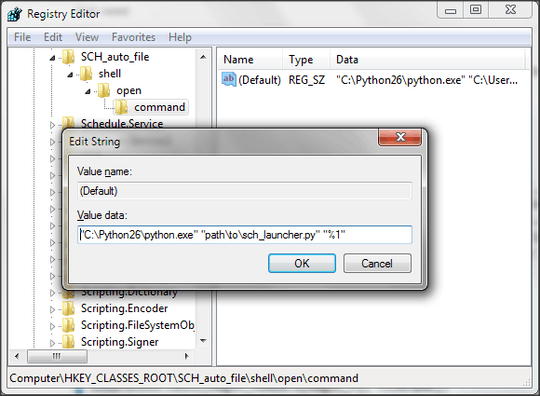10
1
Multiple programs use the same file extension, but the formats are totally different and incompatible. For instance, I have .sch files on my computer that are in at least 5 different formats (TINA, PSpice, PADS, Protel, and Eagle). Is there a way to get Windows to treat them differently, so that double-clicking on such a file opens it in the program it's meant to be opened in?
Linux uses magic numbers in the files themselves to differentiate, and only uses file extensions as a fallback plan. (All PNG files start with the bytes 89 50 4E 47 0D 0A 1A 0A, for instance, regardless of what you name them.) It would be nice if Windows could support this, but probably very difficult to implement. Maybe something simpler like a second-level extension, like filename.program1.sch and filename.program2.sch? Maybe some kind of filter that renames files on the fly?
Better idea: Associating the ambiguous extension with a pre-processor (.bat file or dedicated app) that checks for a second-level extension or goes into the file itself and scans for the magic number and then launches the appropriate program?

1TrID may be of interest to you -- it has a database of 4400 binary signatures. – josh3736 – 2011-08-02T14:28:41.490
I remember this used to happen on the RISC OS but sometimes used to cause frustration when you had multiple apps that could process the same file type and it would open the program with the wrong program!
– Matt Wilko – 2011-08-02T14:58:53.583@Matt: Great, thanks! http://file-extension.net/seeker/file_extension_sch
– endolith – 2011-08-03T04:03:13.437